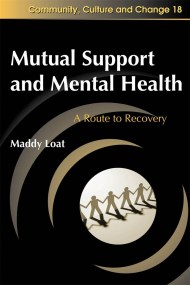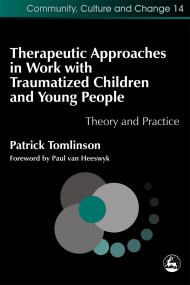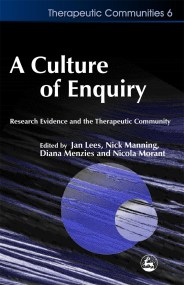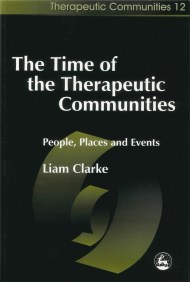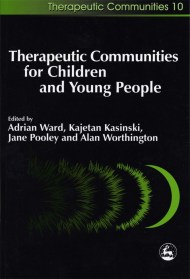Thinking About Institutions
On sale
15th May 2001
Price: £26.99
This book not only documents how a therapeutic community functions, it also contributes to understanding how people can be influenced by their social setting and how individuals can form coherent social organizations together.’
– Administration & Policy in Mental Health
‘Hinshelwood is a leading figure in the pro-therapeutic communities camp. This book is a collection of many of his papers and presentations on the subject. We enjoy a rich journey through philosophical thought of the last 200 years with Marx, Foucault and Wittgenstein, among others, making an appearance. The book is strongest on the historical development of therapeutic communities. There is plenty of food for thought here.’
– Mental Health Today
‘In this book, Bob Hinshelwood distils a lifetime of clinical and intellectual work to discuss the major contours of the social and psychological processes that can be found in the twentieth and twenty-first centuries. Using ideas drawn from the psychoanalytic world he examines the powerful relations that develop between groups and between individuals and their social surroundings. The argument is clearly and securely based, and will prove an enduring and helpful contribution to that spirit of reflective enquiry to which he is so deeply committed.’
– Nick Manning
The interplay between the internal world of individuals and the external, social world has been the theme of many papers R.D. Hinshelwood has published over the past two decades. In this book he brings these ideas together, and shows how they derive from therapeutic community practice, and have arisen from a psychoanalytic understanding of the human unconscious. Many institutional phenomena derive from this hidden level, and have implications for therapeutic work in communities and in psychiatry, for understanding institutions in general, and for reflecting on public and political aspects of society at large. These themes link discussions of communication phenomena, of thinking and action in institutions, of alienation, and of the place of therapeutic communities in a psychiatric service.
Thinking About Institutions not only documents how a therapeutic community functions, it also contributes to understanding how people can be influenced by their social setting and how individuals can form coherent social organisations together.
– Administration & Policy in Mental Health
‘Hinshelwood is a leading figure in the pro-therapeutic communities camp. This book is a collection of many of his papers and presentations on the subject. We enjoy a rich journey through philosophical thought of the last 200 years with Marx, Foucault and Wittgenstein, among others, making an appearance. The book is strongest on the historical development of therapeutic communities. There is plenty of food for thought here.’
– Mental Health Today
‘In this book, Bob Hinshelwood distils a lifetime of clinical and intellectual work to discuss the major contours of the social and psychological processes that can be found in the twentieth and twenty-first centuries. Using ideas drawn from the psychoanalytic world he examines the powerful relations that develop between groups and between individuals and their social surroundings. The argument is clearly and securely based, and will prove an enduring and helpful contribution to that spirit of reflective enquiry to which he is so deeply committed.’
– Nick Manning
The interplay between the internal world of individuals and the external, social world has been the theme of many papers R.D. Hinshelwood has published over the past two decades. In this book he brings these ideas together, and shows how they derive from therapeutic community practice, and have arisen from a psychoanalytic understanding of the human unconscious. Many institutional phenomena derive from this hidden level, and have implications for therapeutic work in communities and in psychiatry, for understanding institutions in general, and for reflecting on public and political aspects of society at large. These themes link discussions of communication phenomena, of thinking and action in institutions, of alienation, and of the place of therapeutic communities in a psychiatric service.
Thinking About Institutions not only documents how a therapeutic community functions, it also contributes to understanding how people can be influenced by their social setting and how individuals can form coherent social organisations together.
Newsletter Signup
By clicking ‘Sign Up,’ I acknowledge that I have read and agree to Hachette Book Group’s Privacy Policy and Terms of Use
Reviews
`This book not only documents how a therapeutic community functions, it also contributes to understanding how people can be influenced by their social setting and how individuals can form coherent social organizations together.'
`Hinshelwood is a leading figure in the pro-therapeutic communities camp. This book is a collection of many of his papers and presentations on the subject. We enjoy a rich journey through philosophical thought of the last 200 years with Marx, Foucault and Wittgenstein, among others, making an appearance…The book is strongest on the historical development of therapeutic communities…there is plenty of food for thought here.'
`In this book, Bob Hinshelwood distils a lifetime of clinical and intellectual work to discuss the major contours of the social and psychological processes that can be found in the twentieth and twenty-first centuries. Using ideas drawn from the psychoanalytic world he examines the powerful relations that develop between groups and between individuals and their social surroundings…the argument is clearly and securely based, and will prove an enduring and helpful contribution to that spirit of reflective enquiry to which he is so deeply committed.'


